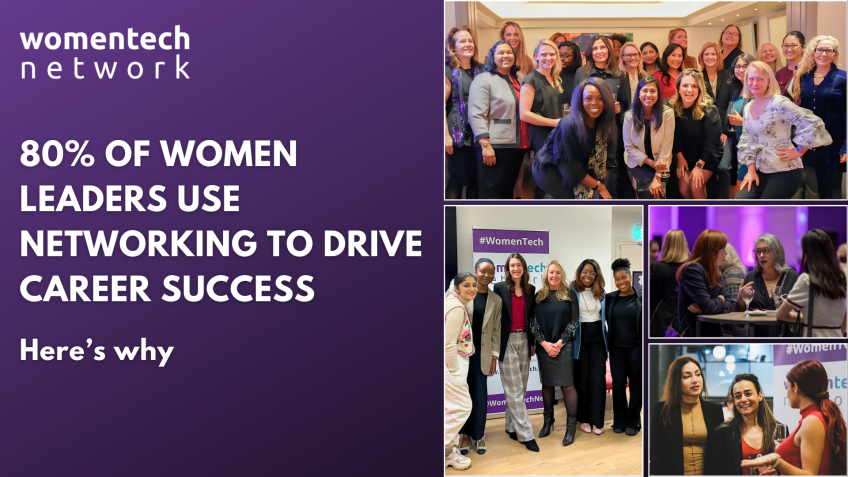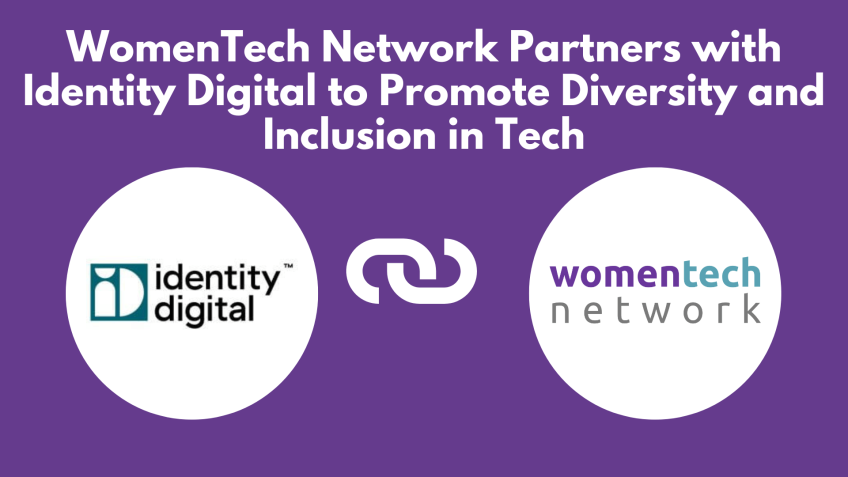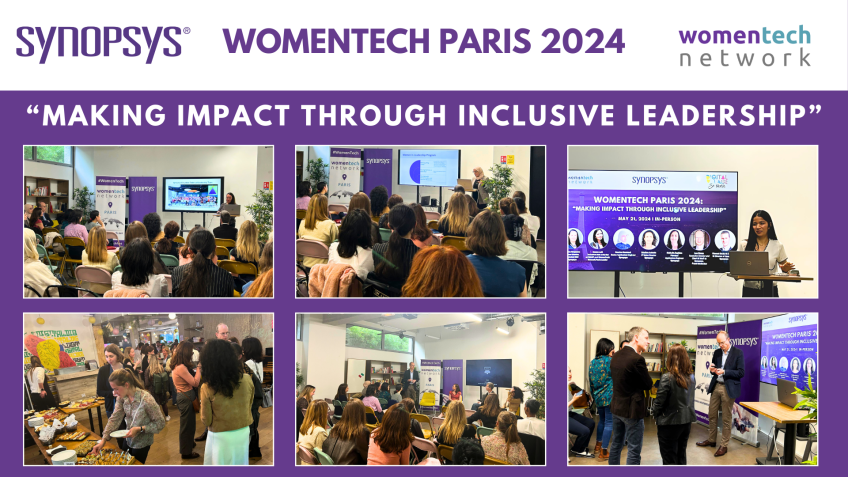What’s your limit?: New Motherhood in the C-Suite by Nabiha Syed
Surviving the Messy Intersection of Motherhood and Executive Leadership
In a lively and informative chat session, we traversed through many knock, knock jokes, fun comments, and pressing questions. One of the notable takeaways was understanding the experiences of being a new mother while simultaneously holding a prominent role in company leadership. These experiences, although challenging, can offer valuable lessons.
When Motherhood and Business Collide
Bringing together personal anecdotes and insightful observations, we discussed how motherhood is and business can be messy, but the essence lies in how we navigate these messy times. The conversation touched on how our sanity can be put to test during challenging times, and more so in the wake of a pandemic. A staggering 3.5 million mothers have lost their jobs or had to take a leave of absence since the pandemic, indicating the real stakes and the importance of holding onto sanity amidst chaos.
It's crucial to acknowledge three principles that can help not just new moms, but anyone navigate through the ups and downs of life:
- Accepting the unknown: Preparedness is key, but flexibility in handling unexpected situations is equally important.
- Recognize it's okay to let some things slide: As humans, we tend to flock towards perfection. However, we must realize that there will be certain aspects of life where we won't necessarily excel, and this is completely okay.
- Prioritize self-care: While we long to create a balance in life and ensure we cater to everyone else's needs, it's important not to sideline our own needs in this pursuit.
Building A Support Network
Having the right balance and support network at home and work can streamline your journey through motherhood and executive leadership. Conversations and clear communication help to set expectations and maintain harmony. It's important to have a competent and understanding team at work and to cultivate a balanced yet flexible work culture that values each employee's personal life.
Conclusion
While the balancing act of being an executive and a mom can be tough, knowing how to navigate it effectively can make all the difference. Remember to embrace the unknown, acknowledge that it's okay not to be perfect, build a strong support system, and importantly, take care of yourself throughout the journey.
For further discussions or advice, feel free to reach me at [email protected]. Remember, life is a beautiful juggling act, and we often drop a ball or two. The key is to keep going, learn from experiences, and strive for balance.
Thank you for joining the chat. It was indeed a pleasure to share experiences and answer your questions. Further discussions or inquiries can be sent to my email at [email protected] or through my social media handle @Nabihasay.
Video Transcription
Thank you to everyone, putting knock, knock jokes in the chat. It's fun to keep these kinds of interactive things as lively as we can. Um Please put your comments, questions, anything you have um in the chat.Otherwise, thank you so much for giving me this opportunity to share a little bit about what it's like to be a, you know, a new mom in the C suite. And so whenever people ask like, oh, what was it like to be eight months pregnant and accept the role of president at a, you know, start up $20 million media organization I always offer with the follow the following little, you know, moment my son was about five months old. The pandemic had just gotten underway. So everything that was supposed to be in person all of a sudden became virtual. And I was supposed to give a lecture at Columbia Business School, which is very exciting, such a huge honor. But as it turned out, my husband had a meeting at the same time, we didn't have childcare because it was early pandemic. And uh you know, the lecture had gone virtual. So I decided that I'm going to be a new modern mother. And I'm going to have my infant with me while I deliver this wonderful lecture. About five minutes in my beautiful infant son, Musa decides to vomit in my hair uh while I am talking and there is no choice but for the show to go on.
So I continue giving my lecture about ethics in technology and why it's critical for businesses to take that into account and uh with just vomit dripping through my hair. And so my takeaway is that motherhood is literally messy and so is business and there's no point in denying it, right? So the question is, how do you navigate it? How do you survive it? How do you keep your sanity as you're trying to juggle all of these things? And I think the question of how we, how we keep our sanity while doing difficult things has been front of mind for so many of us in the last two years, no matter what your set of challenges has been right in the pandemic. Life has been messy and especially for mothers since the start of the pandemic. The latest numbers I've been seeing is 3.5 million mothers have lost their jobs or had to take a leave of absence or leave the workforce indefinitely. And so the stakes are real, right? This is really hard. Um And so I thought not that I have any, you know, silver bullet solutions, but there's sort of three principles that have helped me navigate this messy, messy time. The first is accepting that you're going to operate in the unknown.
Now, for me, I'm a lawyer by training. And so my job is to look into the abyss of the unknown and make calls on risk. It seems like it might not be too different from Katie Witt's job where she's a remote security analyst. Your job is to figure out what the problems are going to be. And I understood my value as being a person who could peer around a corner anticipate what would happen and not let any balls drop. So early parenthood was really hard for me. Right. There's feeding schedule sleeping, you're problem solving in real time. There's no way that you could figure this all out in advance because you don't know what your problems are going to be. I remember, um, uh my son had a ton of trouble sleeping. He was not a good sleeper in the beginning and we figured out quickly that he liked listening to the 1812 Overture. I don't know why, but it would put him to sleep and calm him down. It's not a calming song. And, but once we figure that out, we just played that song endlessly on loop. We still are moderately sane. But um, it meant that you just had to solve creatively, right? And that is so much of what business, especially early start up life but really anything creative is you are looking at an issue solving creatively and doing what you can and what that means is you have to show up to everything with a tremendous amount of humility, right?
You're going to be in for a world of surprises that has a downside too, right? I found myself like maybe seven or eight months in uh into the new job then approaching every single decision with that level of like, OK, we don't know anything. I'm showing up with humility. How do I problem solve this? And if you do that for every single decision, it's going to take you a long time to get stuff done, which you don't have time. If you're in the c suite, you don't have time. If you're a mom or a partner or a friend, really trying to do that. So one sleepless night at two o'clock in the morning, I was chatting with a friend who also had a young child and I was just complaining about how the fact that there was no clear playbook or recipe meant that I was spending too much time on each decision. And she said to me, have you heard of the Jeff Bezos one way door philosophy? And I said, why the hell are you talking to me about doors at two o'clock in the morning? And she said, no, no, no, it's worthwhile. And for those of you who might not have heard of this philosophy. The one way door approach says, you know, there are decisions that are two way doors, you can reverse out of them, you can get out of it. And for those decisions, make them fast.
If you mess it up, it's ok. Understand what it takes to fix it, but don't lose sleep over it. Don't, don't start from scratch on those decisions. Try what you can see if it works, move it along and change along the way, one way door decisions, things that you can only walk through once and are really hard to take back. That is what you should be spending your time on. And so when you're operating in the unknown, as so many of us are in the c suite or in our careers or as parents, you got to triage those decisions, right? You have to recognize which are ones that are, you really can't make up for and which are the ones that you can and you don't need to spend too much time on. So the 2nd, 2nd principle that's been really helpful for me and, but probably the most challenging is recognizing that you can, you can drop some balls like it's ok, it's ok to drop some balls. Um, because early on I did one overwhelming thing about again being a new mom and being a new executive was the logistics of everything there's pumping. There are emails, there's last minute meetings that you have to get to somehow the subway is not working.
I, I'm sitting here in Brooklyn, there's late night pitch decks, there's everything is happening all the time and it feels really chaotic because it is chaos. Right? And you have to make your peace with that. And I think there's a lot of advice. I got really great advice from a lot of new moms that said, organize prioritize delegate, which is right. But that still felt chaotic to me, right? I was organizing, I had my notebooks, I had my spreadsheets, I had my little index cards and post it notes and I was prioritizing and moving those, post it notes around and I was delegating and it still felt like a lot. Right? And so I feel like so much of that advice kind of presumes that with enough organization or enough prioritizing or enough delegating, you'll find that swan like piece and you'll be totally fine. And that, that, that wasn't the case for me. And when I started talking to parents a little bit more, um especially moms, they were like, no, it's, I mean, organizing prioritizing, delegating helps, it helps get stuff done. But there's still going to be things that don't happen like dishes or making sure that your socks match or that your kid socks match or that a kid even has socks on perfection isn't the standard and you really have to let go of that.
Um As quickly as you can while recognizing you know, you're not dropping all the balls. Ok, you're dropping the ones that don't matter to me, they were kind of two balls that I couldn't drop that were really, really important. You know, aside from the professional responsibilities, that sort of a higher level, the two balls that I thought you got to really pay attention to as they're in the air. The first one is how you treat people. I'm a pretty impatient person by nature. Um I think it's a good ingredient for success. I think it's a good way to keep high energy bias for action going. But there's, you know, and it's good for an executive, right? You, you want to be impatient enough that you make things efficient in your job that you keep you moving forward. There's a difference though, in being impatient with processes, right? Recognizing inefficiencies, understanding what you need to iron out, getting things going and being impatient with people, right?
Being impatient with people, especially to me, I felt fortunate to learn this lesson during the pandemic where everyone was really grappling with all kinds of life. You have to show up with grace, you have to have patience with people. You have to recognize that you're going to need that grace too. And I think that balance of figuring out and communicating, which is really important. I'm impatient with this process or with this outcome or with this thing that we need to fix in order to succeed in the workplace or in the home is really different than being impatient or short with a person. Um And separating those out, communicating them clearly is, is really important. And that was a ball that like once I identified that it was a ball that really mattered in this part of my life. It was one that couldn't drop and like taking the extra time to make sure you're showing up as a human being is really important on that theme. You two are also a human being, right? So the second ball you can't drop is how you treat yourself. Um I have known a lot of moms been around a lot of moms. My mom at times was this kind of mom where she came last, right? She was sacrificing so much for so many others.
And there's at times a moment and you know, it's perspectives, not a culture that really valorize the mom that like comes last, comes after everyone else. And it's, it's one thing to prioritize care for others, which to me is I think part of my leadership style within the organization and I aspire to be that way consistently as a mom. Um But that doesn't mean that you sacrifice yourself, right? So you really have to take the time and it's hard to find the headspace, but you have to, to figure out kind of what does that mean for you? Right? For me, it meant that um I realized if I took my calls that could have been zooms as phone calls while walking in the park amidst trees and other nature that, that really felt like it was nourishing a part of me that needed to be nourished. I really like being outdoors. I really like being amidst greenery as you can see by the rainforest cafe that I live in right now. Um It was, it was important to identify that thing that was for me. I also have this terrible habit, but I'm never going to give it up of, um, attempting to find books that I really want to read. Something that has nothing to do with business. Nothing to do with media, which is the industry.
I'm from nothing to do with law, which is my training and nothing to do with parenting, which I think about a lot. Just think of reading a book that was totally about something that interested me as a human being and occasionally staying up all night totally rec recklessly just to get the book done because it was a thing for me and not for anyone else. You got to figure out what that healthy thing is for you. There's a lot of ways where people end up filling their cup or nourishing themselves in ways that aren't healthy or aren't productive. Um You got to take the time to figure that out and that ball can't drop, but it's a really easy one to drop. Because you think if I drop it, the only person I hurt is me. Right? And when you're juggling being a mom and being a leader, you don't want to hurt anyone else, I assume. Um, and so it, it feels like the ball that's the easiest to drop. It isn't because the moment you drop that one, you're going to start to slip up, you won't recognize what those other balls really are and the, and be able to show up for the juggling act that is our lives.
Um Also for those of you who are looking for book recommendations, it just finished the Right to Sex by Amelia uh Amia Reni Von, which is a book about feminism and its sort of shortcomings in the modern era as well as the path forward, strong recommend and you don't even have to stay up all night to read it.
It's not that long. Um In the third sort of last thing, the last principle that helps me going is really thinking about how to build the right support network early in my pregnancy. I felt bombarded with the recommendations and lists and what stroller are you going to get? What like are you, are you wearing that ergo baby or do you have a sling? And I was like, what is this? I turned to my husband and I said, OK, listen, buddy and he's great. We've been together for 14 years. Um I was like, this is our R and D operation. OK. Research and development I am developing because that is biologically what I'm able to do that. You can't right now, you're going to have to be research. And my husband who's an engineer by training was like, all right, I understand the assignment. I am going to take over researching all this stuff that people tell you that you need. And he took that assignment and he ran with it, right? I remember coming home after a particularly grueling session with one of our investors and hearing him on the phone interviewing an engineer at Mela about the suction power of the mela breast pump versus the spectra breast pump. And I was like, you know what, sometimes you delegate things to people who are going to do a better job than you. And that is really important, right?
And, and like so many people say it, but it really is true, picking the right partner for you and for whatever cultural context or balance, that's right for you is really important and it's important to have those conversations early, right? I have so many friends who have sort of figured out early in motherhood that the balance they thought they had isn't the balance that's real and it's really worth it to hyper communicate around it. Because even if you think that your partner is the most equitable, wonderful balanced forward thinking person, we all operate with schemas and models of what we've seen whether that's in your own families or other parents or families around you or television or whatever, it's worth it to talk about that really openly.
And for me, like I came from a family where my mom started her own architecture firm while she was pregnant with me. So I knew what it looked like to have, you know, two working parents, an entrepreneurial mom and siblings and family. My husband's father passed away when he was younger. So he grew up seeing what it was like to have a single, highly successful professional mom. He is West African. I am Pakistani. There were a lot of cultural layers on it too and like just kind of want to have that conversation upfront. Communication is your friend because there's a lot, you just get a lot out of the way and eliminate and pre empt a lot of arguments that can come when you just talk about where you're coming from. You also need to figure out the care infrastructure. That's right for you. And I'm not just talking about childcare because then I would be talking to you for like five hours about what we need to be doing as a nation on child care. But I also think like thinking about how your family fits in is really important. So my family is all in California. My husband's family is in Accra, in Ghana. We're separated by an ocean.
And so they can't really do like the school pickups, but they still step up all kinds of different ways. And it's important to realize that when you're building a community of support and, and care that you be creative, right? So, like my uh my family is really good at Facetiming my now toddler to say like, hey, how's your day while I'm like finishing up dinner or getting something done? Um Recently I had to fly to Europe for some family stuff as well as some work stuff. And my sister and her fiance rerouted their trip through New York so they could fly with me and my toddler because I had to fly before my husband was able to join me. Your care infrastructure also involves your friends. It can be and, and, and it doesn't mean like only your mom friends. I actually found it really helpful to have my non mom friends, like, remind me of who I am, what I care about hobbies that I had. Um It's also fun to hear about other people's problems that are just it from a different context. It helps you feel like you're helping other people too. So I have friends that are venting partners, friends that are walking partners, friends that are other mom executives, which I found so invaluable in the moments where I was like, how does one do this? Right.
Um It was really, really helpful to have friends who have done it before who are happy to share their foibles as well as their successes. And for those of you who are in the audience right now, if you don't have mom exact friends and you want to find someone to talk to, I will make time for you and maybe at a weird hour of the day, but I will make time for you. You can email me at Nabiha, the markup.org. We just like, can't do it on our own. Right? You also need other friends who have a friend who um you know, I think Children are not really, that's not something in her life at the moment. Um but she will come over and she will make dumplings with my son while I'm finishing up some emails. So again, thinking about how your care infrastructure isn't just like the daycare that you pick or the nanny that you have, but a community that you're building, that you're participating in giving to and taking from becomes the community for your family is really valuable. Now, I think maybe the most part of this most important part for me, of the sort of support network and infrastructure bridging, just not only personal parenthood is also understanding your workplace and your team, you need the right team in your, in your workforce.
You need a team of competent, talented people who you don't only have to delegate to people who can spot issues on their own and troubleshoot. I learn a lot from my team at work. Um you know, a lot of leadership, you hear about how you need to be a good example to others and how you need to comport yourself. And that is also very important. But what I have found so enriching with my team is, and some of my teammates are here today is that I've learned, they are a good example for me, right? In a lot of moments, they are helpful, thought partners for me, I think of them as not as like a leader and sort of employees, but like they're part of your community. You spend a lot of your time, especially if you're in the c suite, a lot of time with these people and you need them to be along on the journey. Um My husband says this all the time of like he went from working in a place where there really weren't that many parents um to a place where there's a lot more parents, particularly fathers because of the gender composition of where he works and people get it.
If you know, our son is sitting on his lap while he's taking a call at 7:30 p.m. Like or if he says, hey, I'm going to need to talk to you at 10:30 p.m. Like, you know, post bedtime, post dinner, post clean up, they get it and you really, really need that. The last thing I'll say because I know we just have a minute is that um and then we talk a lot about sort of care, infrastructure support systems. You do have to remember to ask for help, but remember to reciprocate too. I think it's really easy to get into this headspace of like I need help and who can I pay or find or whatever to help me out. You just got to remember to pay it forward because life is long and, and you would do that anyway. But I think keeping that front of mind is also a source of joy. Um As you sort of juggle it all, so there's no secret sauce to the balancing act. I don't have any answers. And as I um plan to have my second child in September, so I'm going on parental leave as a CEO. Um you know, there aren't real answers, but there are ways to navigate it. And for me recognizing that you're operating in the unknown, that it is ok to drop some balls and that you have to carefully tend to the garden.
That is the right support network for you is the only way I know to make it through. Thank you so much for joining me in uh in this chat. It's been really one. I'm gonna look through the whole chat and see if there's any questions again. You can find me on the internet pretty easily at Nabiha say um or Nabiha at the markup.org. Thank you so much, everyone





